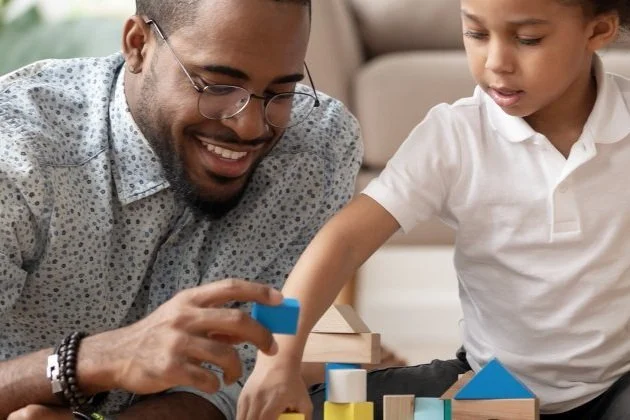Thriving Child Center
Parent-Child Interaction Therapy (PCIT)
The results are overwhelming: PCIT helps parents and caregivers manage difficult behaviors as long as parents are consistent with PCIT principles.

Thriving Child Center
Parent-Child Interaction Therapy (PCIT)
The results are overwhelming: PCIT helps parents and caregivers manage difficult behaviors as long as parents are consistent with PCIT principles.


Our Virtual Clinic
Introducing Thriving Child Center’s new, virtual speciality PCIT clinic with Expert PCIT clinicians from around the country!
Receive Gold Standard PCIT in the comfort of your own home!
Parent-Child Interaction Therapy (PCIT) is an evidence-based treatment for children ages 2-7 years old that significantly improves parent-child relationships and decreases disruptive behavior.
PCIT has 2 distinct phases:
The Child-Directed Interaction: In the first phase of PCIT, you learn how to be your child’s play therapist. We teach you play therapy skills that improve behavior and social skills in young children. Then, we support you by watching you play with your child and coaching you, right in the moment, so that you learn skills quickly and we can help you manage challenging behavior. When something goes wrong, we’re here to help you know what to do. When something goes well, we’re here to help you reinforce it!
The Parent-Directed Interaction: The second phase of PCIT is about teaching you and your child a very consistent discipline sequence that helps your child learn to follow directions. You learn how to clearly communicate with your child without yelling and still have your child listen to you. We’re right here with you, coaching you, when discipline gets tough.
PCIT is helpful to families struggling with a range of concerns including:
Children with oppositional behaviors
Children who can’t control their emotions
Children diagnosed with attention problems
Children diagnosed with Autism Spectrum Disorder
Children getting in trouble at school/daycare
Children who are going through changes in the family (for example, new sibling)
Children who have experienced traumatic events
Children with low self-esteem
Children who are anxious
Children who are struggling socially